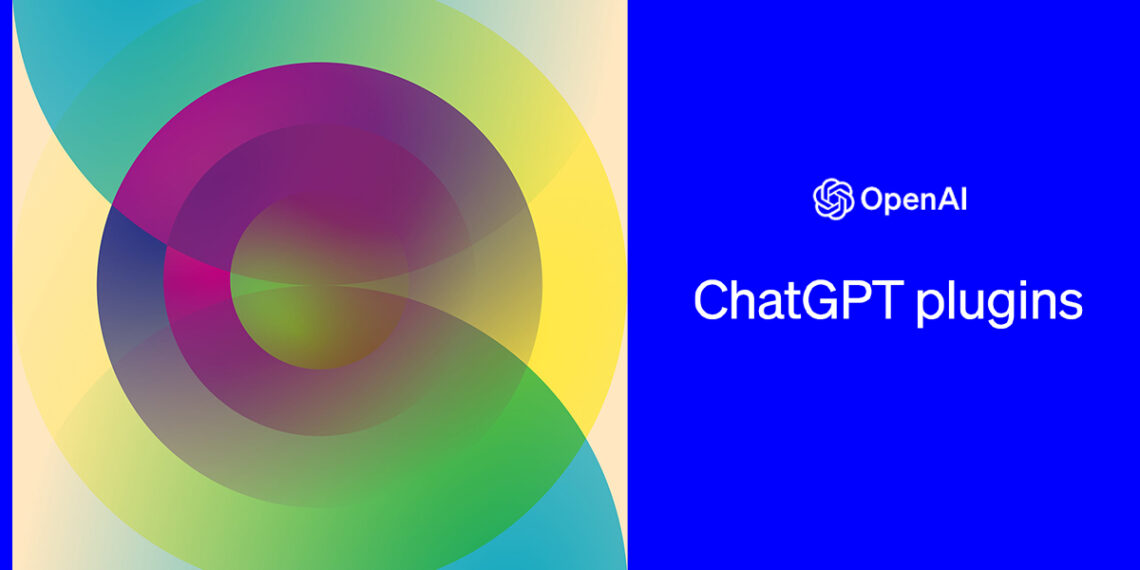Are you tired of limited conversations with language models? Do you wish to enhance your AI interaction with real-world information and actions? ChatGPT has got you covered with its groundbreaking plugin platform.
With ChatGPT plugins, you can expand the capabilities of language models beyond their training data and unlock a vast range of possibilities. Join us as we dive deeper into ChatGPT plugins and explore how they can revolutionize the way we communicate with AI.
Introducing ChatGPT Plugins: Expanding the Capabilities of Language Models
OpenAI, the research organization behind some of the most advanced artificial intelligence (AI) systems, has announced that it is rolling out plugins for its ChatGPT language model. This move comes as part of the company’s “iterative deployment philosophy,” which aims to study the real-world use, impact, safety, and alignment challenges of plugins to ensure that they are safe and aligned with OpenAI’s mission.
We’ve added initial support for ChatGPT plugins — a protocol for developers to build tools for ChatGPT, with safety as a core design principle. Deploying iteratively (starting with a small number of users & developers) to learn from contact with reality: https://t.co/ySek2oevod pic.twitter.com/S61MTpddOV
— Greg Brockman (@gdb) March 23, 2023
Users have been requesting plugins for ChatGPT since its launch, and many developers have been experimenting with similar ideas. Plugins offer a vast range of possible use cases and can be “eyes and ears” for language models, providing access to information that is too recent, too personal, or too specific to be included in the training data. Additionally, plugins can enable language models to perform safe, constrained actions on users’ behalf, increasing the usefulness of the system overall.
The Limitations of Language Models and the Potential of Plugins
The power of ChatGPT plugins is transforming the experience of conversational AI forever. With the first plugins developed by major companies like Expedia, FiscalNote, Instacart, KAYAK, Klarna, Milo, OpenTable, Shopify, Slack, Speak, Wolfram, and Zapier, ChatGPT is opening up a world of possibilities for developers to create custom AI solutions. OpenAI has also hosted two plugins of its own, a web browser and code interpreter, and has open-sourced the code for a knowledge base retrieval plugin. This allows developers to self-host and access a wealth of information to augment the AI experience.
ChatGPT plugins are enabling a new level of customization and usability for AI solutions. For example, developers can tailor the AI experience to their own needs and use cases, creating a truly personalized conversational AI experience. Additionally, plugins can access a vast array of data and information, giving users access to the latest news, trends, and insights. This further enhances the AI experience, making it more relevant and useful.
Overall, ChatGPT plugins are revolutionizing the way we use conversational AI, creating an enhanced user experience and opening up a world of possibilities for developers. With the support of OpenAI, developers can create custom AI solutions, access diverse data and information, and tailor the AI experience for their own use cases. This is transforming the AI experience forever.

The company plans to gradually extend plugin access to users and developers from its waitlist, prioritizing a small number of developers and ChatGPT Plus users at first but eventually rolling out larger-scale access over time.
While plugins offer significant opportunities to enhance language models’ utility and address some of their limitations, they also introduce new risks. By connecting language models to external tools, plugins could increase the capabilities of bad actors who would defraud, mislead, or abuse others. To mitigate these risks, OpenAI has implemented several safeguards and plans to iterate on its protocol as it learns from deployment and continues to improve its safety systems.
OpenAI expects that open standards will emerge to unify the ways in which applications expose an AI-facing interface. The company is working on an early attempt at such a standard and is looking for feedback from developers interested in building with it.
FAQ
What are ChatGPT plugins and how do they work?
ChatGPT plugins are add-ons that allow the language model to access external data sources, transform data, and execute code. These plugins revolutionize the user experience by enabling ChatGPT to provide more accurate and relevant responses to user queries.
Can ChatGPT plugins replace human-written content on websites?
No, ChatGPT plugins are designed to supplement existing content and provide additional information to users. While they can access vast amounts of data and generate responses quickly, they lack the creativity and nuance of human writers.
Are ChatGPT plugins safe to use?
Yes, ChatGPT plugins are developed and tested by the team at OpenAI to ensure their safety and security. However, as with any software, it’s important to use caution and only install plugins from trusted sources to avoid potential security risks.
Conclusion
In conclusion, OpenAI’s rollout of plugins for its ChatGPT language model represents a significant step forward in the development of AI systems. While plugins offer significant opportunities to enhance language models’ utility, they also introduce new risks that must be carefully managed. By studying the real-world use, impact, safety, and alignment challenges of plugins, OpenAI is taking a responsible approach to their deployment and ensuring that they are safe and aligned with the company’s mission.








